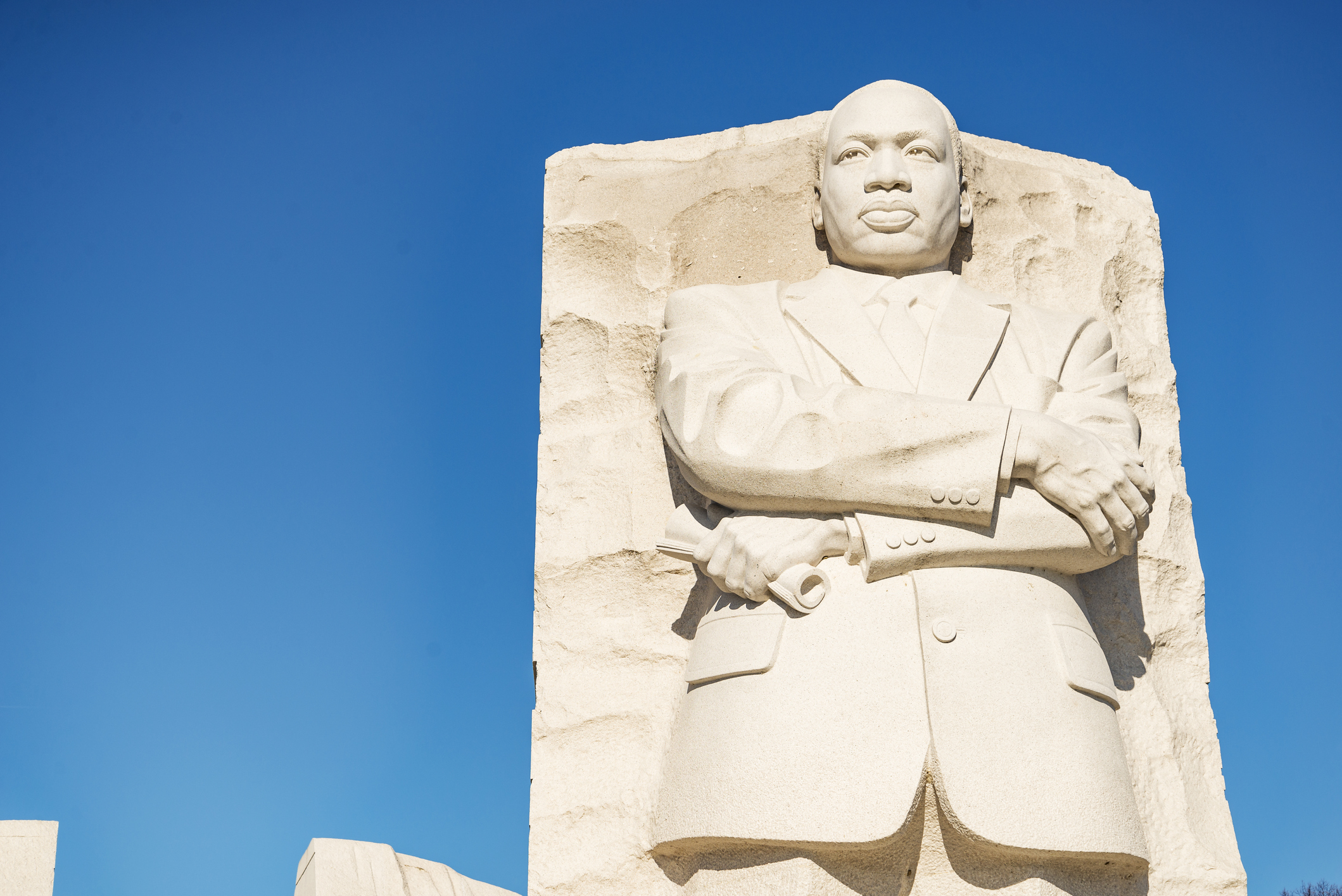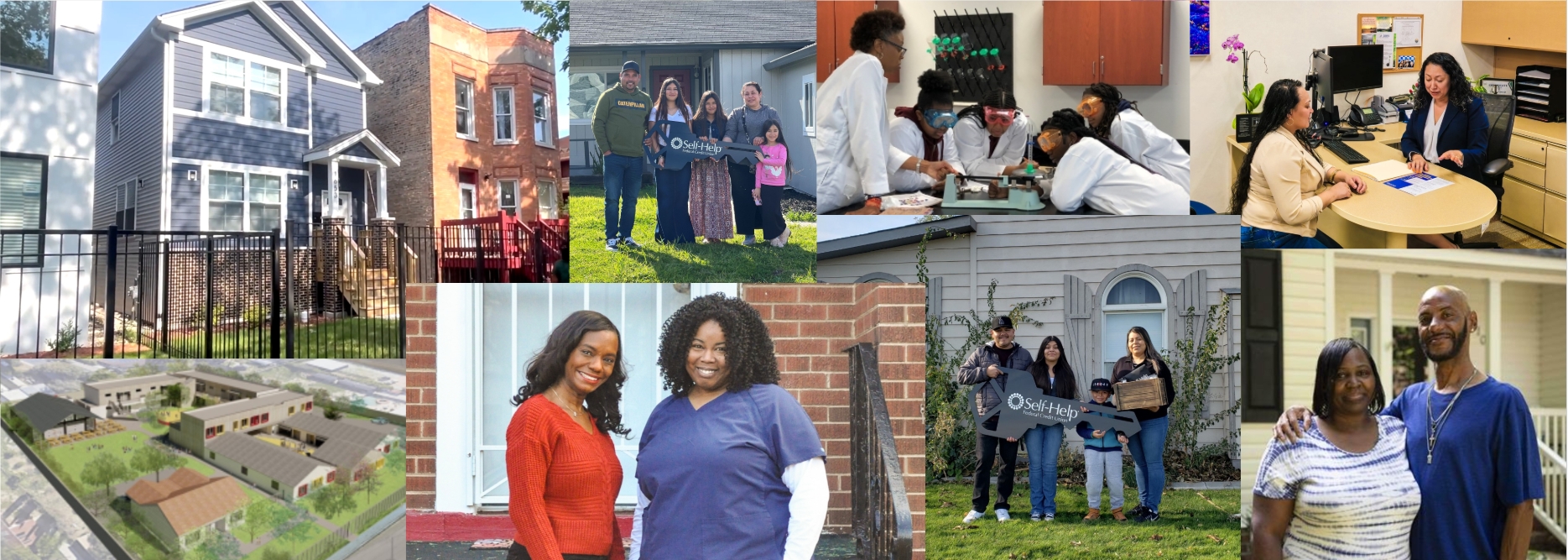
This Monday is Dr. Martin Luther King Jr. Day, and we are honored to celebrate this civil rights activist whose work is integral to Self-Help's mission of economic justice.
Dr. King is known for his legacy as one of the most prominent leaders of the civil rights movement during his time. As part of his teachings and philosophies, he often espoused ideas of economic justice as central to achieving true equality.
In this blog post, we will discuss Dr. King’s vision for economic justice, how CDFIs like Self-Help are focused on achieving this vision, and steps we can all take to work toward true equality.
Dr. King's Economic Vision
Dr. King believed that addressing racial injustice was intertwined with addressing poverty and economic justice. During his Nobel lecture on “The quest for peace and justice,” he said:
“Just as nonviolence exposed the ugliness of racial injustice, so must the infection and sickness of poverty be exposed and healed – not only its symptoms but its basic causes.... The time has come for an all-out world war against poverty.
The rich nations must use their vast resources of wealth to develop the underdeveloped, school the unschooled, and feed the unfed. Ultimately a great nation is a compassionate nation. No individual or nation can be great if it does not have a
concern for ‘the least of these.’”
While Dr. King believed that fighting poverty would help address the disparity between white and Black wealth, his vision was not limited to supporting Black communities. He believed in addressing poverty as a whole, regardless of background. Some
of the ways that Dr. King sought to fight poverty included:
- Guaranteed income – According to Time, this means a monthly cash
payment given directly to individuals with no strings attached. Dr. King believed that “the dignity of the individual will flourish when the decisions concerning his life are in his own hands, when he has the assurance that his income
is stable and certain, and when he knows that he has the means to seek self-improvement.”
Fifty years after Dr. King first called for a guaranteed income, Mayors for a Guaranteed Income was founded. Last year, they released data on mayor-led pilot programs that showed that guaranteed income “provides the freedom and flexibility Americans need to afford
their basic needs, climb up the economic ladder, and pursue their dreams.” - Full employment and living wages – Shortly before his assassination, Dr. King launched the Poor People’s Campaign that included leaders from many different racial identities and called for access to jobs, unemployment
insurance, a fair minimum wage, and education for poor adults and children.
In one of Dr. King’s last speeches called “The Other America ,” he discussed the challenges of Black people seeking jobs: “In this other America, thousands and thousands of people, men in particular walk the streets in search for jobs that
do not exist.... There are so many other people in the other America who can never make ends meet because their incomes are far too low if they have incomes, and their jobs are so devoid of quality.” - Education equality – Dr. King believed that education was essential in allowing access to opportunities and that all people should have equal educational opportunities. He advocated for the desegregation of schools,
sending letters to President Eisenhower to facilitate the Little Rock School desegregation after
the
Brown v. Board of Education ruling. He believed
that “the function of education is to teach one to think intensively and critically” and that it was tied to economic equality.
- Affordable housing – While Dr. King discussed the importance of affordable housing in creating an equal society as part of many of his speeches, it was the focal point of a movement he led called The Chicago Freedom Movement. This movement was created to challenge systemic racial segregation and discrimination in Chicago and its suburbs and included many forms of
non-violent direct action to address segregated housing and a myriad of other issues facing Black communities.
Dr. King and his family moved to a Chicago slum to bring attention to housing conditions of Black Chicago
residents. Through demonstrations, Dr. King was able to negotiate with Chicago Mayor Richard Daley for the Chicago Housing Authority to build public housing in predominantly white areas, and the Mortgage Bankers Association agreed to make
mortgages available, regardless of race or neighborhood. This movement is credited with leading to the Fair Housing Act of 1968, passed just a couple years later.
Civil Rights and CDFIs
Community Development Financial Institutions (CDFIs) are lenders with a mission to provide fair, responsible financing to rural, urban,
Native, and other communities that mainstream finance doesn’t traditionally reach. They were founded out of the Civil Rights Movement to assist in providing capital to underserved communities and promote economic revitalization.
According to OFN, the passing of the Fair Housing Act came at a time
when segregation was already well established. While the act prevented further discrimination in housing, it did not address the inequities that had already been established that made it infeasible for communities of color to relocate to areas
that they had been excluded from. These inequities led advocates to find alternate solutions, like CDFIs, to create access to credit for underserved communities.
CDFIs are built on ideals rooted in the Civil Rights Movement, including some of the teachings of Dr. King. Since their establishment, CDFIs like Self-Help have worked to create a more equitable future where communities who have been undervalued are
given opportunities to receive financial education, grow their resources, and find a path to ownership.
How We’re Working toward Dr. King's Vision

Self-Help is deeply rooted in the notion of ownership and economic opportunity for all. From our start helping employees in rural North Carolina form worker-owned cooperatives and gain ownership of local mills that were being shut down, we are continuously
finding ways to support communities who need it most.
Here are just some of the ways we are committed to Dr. King’s ideals of economic justice:
- Community Development - Self-Help's real estate team has worked to convert properties in underserved communities to invigorate these areas through projects like affordable spaces for nonprofits and small businesses, sustainable food systems, and affordable housing. These projects
provide more equitable opportunities for communities to generate wealth by living and working in a more supportive and sustainable environment.
- The Racial Wealth Gap Initiative & Equity Boost Loans – The Racial Wealth Gap Initiative was
established at Self-Help due to the continued gap in homeownership rates that came out of the centuries of discriminatory practices that kept Black and Latino families from buying homes. The goal is to make flexible loan products that are
more accessible and create more equity in homeownership. One of these loan products includes the Equity Boost home loans,
which are available to first-generation homebuyers and homebuyers with modest incomes. Some of the benefits include 0% down payment, lower interest rate, lower minimum credit score, no private mortgage insurance, and the ability to be combined
with down payment assistance.
- Charter School Lending – We lend to public charter schools that
create and expand quality educational opportunities for students who are poorly served by existing options, especially students of color, English language learners, students with learning differences, and those in low-income and rural communities.
We are honored to support the work of incredible schools like Valor Academy who
are dedicated to providing accessible education for people of all backgrounds.
- Financial Coaching – Like Dr. King, we believe that education is essential to creating opportunities, which is why our members have access to free financial coaching. We offer FICO® Credit Score Coaching, Financial Coaching with one of our Self-Help coaches, or counseling through our partners at GreenPath.
We are committed to making resources available to our community and supporting their financial goals.
What Can You Do?
If you believe in Dr. King’s vision of economic justice, here are a few ways that you can get involved and move our society toward a more equitable future:
- Advocate for fair wages – There are consistently campaigns and ballot measures for higher minimum wages. Get involved by advocating for local wages to be raised in your area or join a more widespread initiative like
the
Fight for $15/Fight for a Union movement.
- Support affordable housing initiatives – Advocate for policies and initiatives that increase low-income housing availability or even consider investing in low-income housing if that is an option for you.
- Support education initiatives – Fight against bans that limit education or consider volunteering at local schools or programs for underserved communities.
- Buy from local businesses owned by People of Color – This supports the redistribution of wealth and empowers communities who are often not given the same opportunities to thrive. Finding online shops owned by People
of Color has also gotten much easier, and you can often find several options through simple online searches.
- Find out what other initiatives focused on creating equitable opportunities are happening in your community and how you can support them!
One thing that Dr. Martin Luther King Jr. has taught us is how much power lies in bringing people together who have a similar dream for the future of our communities. His ability to incite movements was truly astounding and has led to so many of
the protections that we are grateful for today.
He knew that true equality requires all of us to do our part in breaking down systems that have been built to oppress marginalized communities and reinforcing systems that create opportunities for those same communities to thrive.
In Dr. King’s Nobel Peace Prize address, he said:
“There is nothing new about poverty. What is new, however, is that we have the resources to get rid of it.”
At Self-Help, we are committed to using our resources to fight economic inequality and find ways to continue moving forward on the path to economic justice.